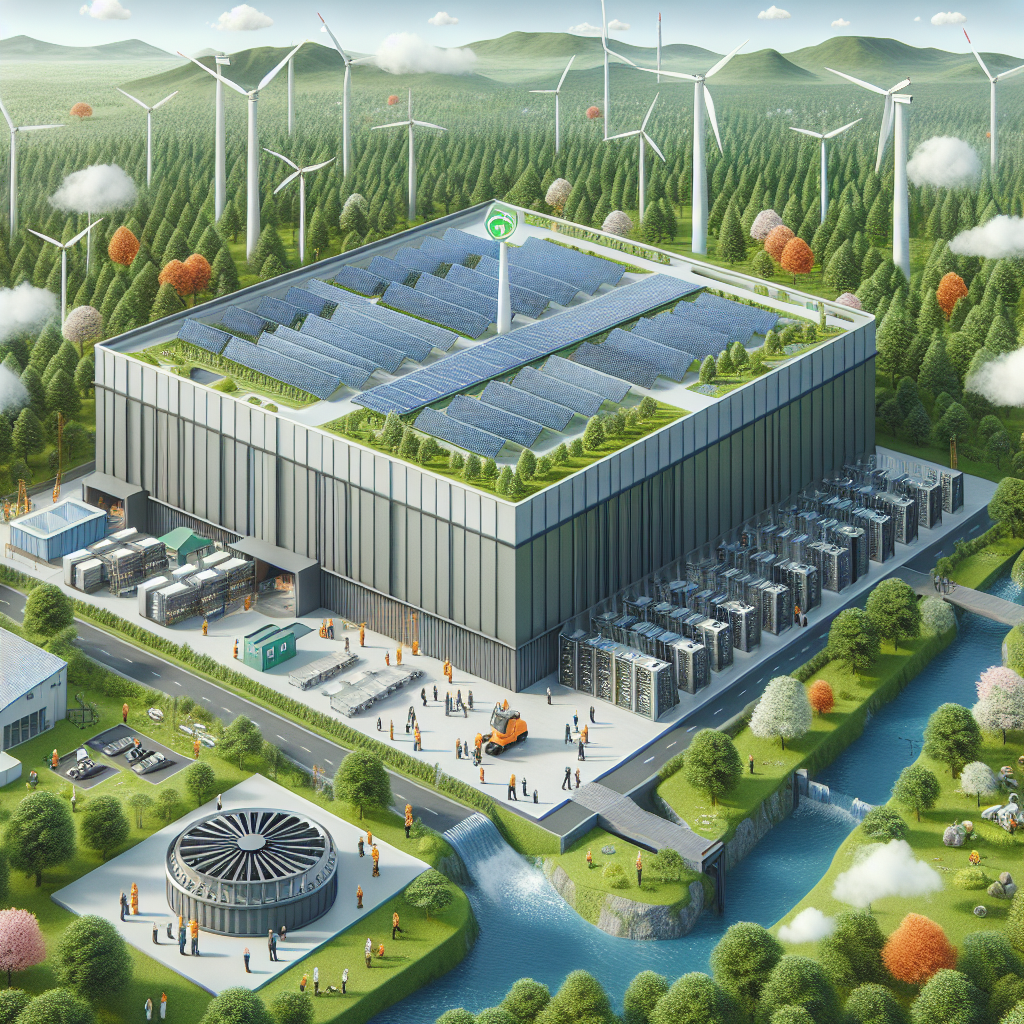In today’s digital age, data centers play a crucial role in storing, processing, and managing vast amounts of information. However, the rapid growth of data centers has led to concerns about their environmental impact, particularly in terms of energy consumption. As data centers continue to expand to meet increasing demand, finding sustainable solutions to enhance energy efficiency has become imperative for a greener future.
One of the key challenges facing data centers is the amount of energy they consume. Data centers are known to be power-hungry facilities that require large amounts of electricity to operate servers, cooling systems, and other equipment. In fact, according to a report by the Natural Resources Defense Council, data centers in the United States alone consume an estimated 91 billion kilowatt-hours of electricity annually, costing businesses billions of dollars in energy bills and contributing to greenhouse gas emissions.
To address this issue, data center operators are increasingly turning to sustainable solutions to reduce energy consumption and minimize their environmental impact. One such solution is the use of energy-efficient hardware and equipment. By investing in energy-efficient servers, cooling systems, and other equipment, data centers can significantly reduce their energy consumption and operating costs. For example, newer servers and storage devices are designed to be more energy-efficient, consuming less power while still delivering high performance.
Another effective strategy for enhancing data center energy efficiency is the implementation of advanced cooling technologies. Cooling systems are essential for maintaining optimal operating temperatures within data centers, but traditional cooling methods can be energy-intensive. By adopting innovative cooling technologies such as liquid cooling, free cooling, and hot aisle/cold aisle containment, data centers can reduce their cooling energy consumption and improve overall efficiency.
In addition to hardware and cooling solutions, data center operators are also exploring renewable energy sources to power their facilities. By harnessing solar, wind, or geothermal energy, data centers can reduce their reliance on fossil fuels and lower their carbon footprint. Many leading tech companies have already made significant investments in renewable energy projects to power their data centers, demonstrating a commitment to sustainability and environmental stewardship.
Furthermore, data center operators are increasingly adopting energy management and monitoring tools to track and optimize energy usage. By monitoring energy consumption in real-time and identifying inefficiencies, data centers can implement targeted strategies to improve energy efficiency and reduce waste. These tools also enable data center operators to identify opportunities for energy savings, such as adjusting server workload distribution or optimizing cooling settings.
In conclusion, enhancing data center energy efficiency is essential for building a greener future. By leveraging sustainable solutions such as energy-efficient hardware, advanced cooling technologies, renewable energy sources, and energy management tools, data centers can reduce their environmental impact and contribute to a more sustainable digital infrastructure. As the demand for data continues to grow, it is crucial for data center operators to prioritize energy efficiency and sustainability in their operations. By taking proactive steps to enhance energy efficiency, data centers can play a key role in mitigating climate change and promoting a more sustainable future for generations to come.


Leave a Reply